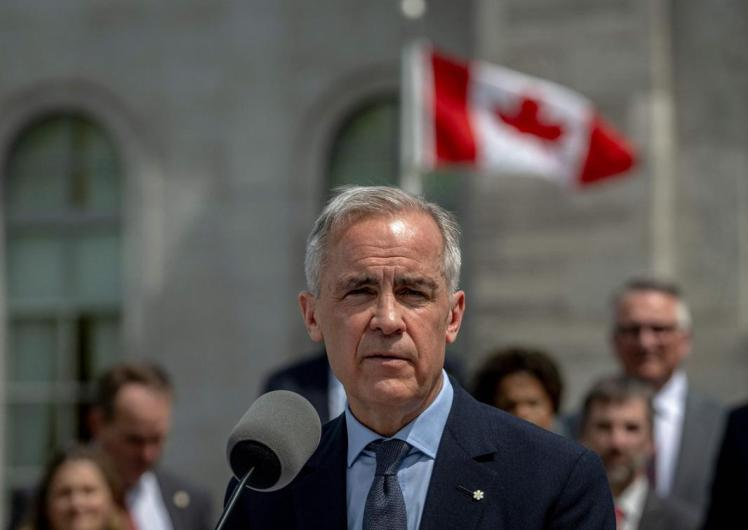
The latest survey by Bloomberg shows that the Canadian economy may have entered a technical recession, mainly due to the intensification of the trade dispute with the United States, which has led to a decline in exports and a rise in the unemployment rate. When surveyed, 34 economists generally believed that the Canadian economy would contract at an annual rate of 1% in the second quarter of this year and decline by another 0.1% in the third quarter.
Due to US President Trump's threat to impose tariffs, some US importers had already completed their purchases at the beginning of the year, causing Canada's exports to drop sharply in the current quarter, with an estimated decline of 7.4%. Although analysts predict that Canadian exporters may see a slight rebound later this year, the overall momentum of foreign trade remains limited.
Affected by trade tensions, the Canadian labor market has begun to come under pressure. Economists predict that the unemployment rate will climb to 7.2% in the second half of the year before it is expected to gradually decline in 2026. Meanwhile, household consumption has become more cautious, the real estate market has cooled down significantly, and both housing prices and transaction volumes have declined simultaneously. It is expected that the number of housing starts will further decrease in the second half of the year.
Inflation is also higher than the central bank's target, which is expected to be 2.1% and 2.2% respectively in the third and fourth quarters. The market generally believes that the possibility of the Bank of Canada adjusting interest rates at its June meeting is less than 30%. Central bank governor Tiff Macklem said, "The more we can reduce uncertainty, the more forward-looking we can be in formulating monetary policy."
The direction of the trade relationship between the United States and Canada has become the focus of market attention. Canadian Prime Minister Carney is expected to hold a new round of talks with Trump during the Group of Seven (G7) summit in Alberta in June. This will be Trump's first visit to Canada since his return to the White House. Carney warned earlier that the era of the two countries' long-term deepening of economic integration has come to an end and future relations may become more complicated.
Despite the current slowdown in growth momentum, economists still predict that Canada's gross domestic product (GDP) will grow by 1.2% within the year and by 1% in 2026.

According to a recent report by Rich Asplund, a columnist for Barchart, the global sugar market is currently experiencing a complex and profound supply-demand game.
According to a recent report by Rich Asplund, a columnist f…
On January 13th local time, the three major US stock indice…
Recently, the 2026 edition of the MIT Technology Review lis…
On January 15, 2026, the US military announced the seizure …
At the 2026 J.P. Morgan Healthcare Conference, a joint anno…
For much of 2025, the market was rethinking whether the dol…